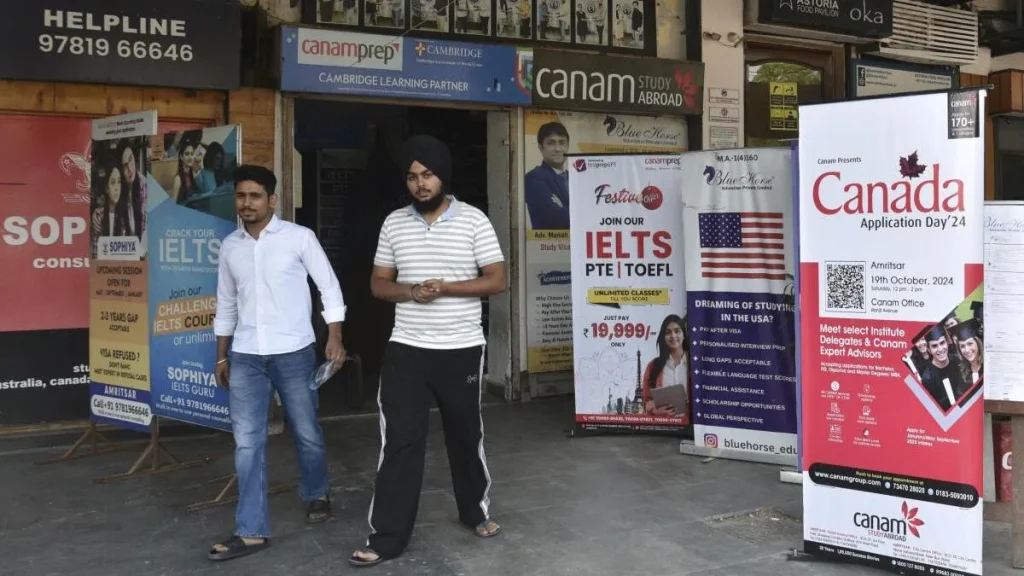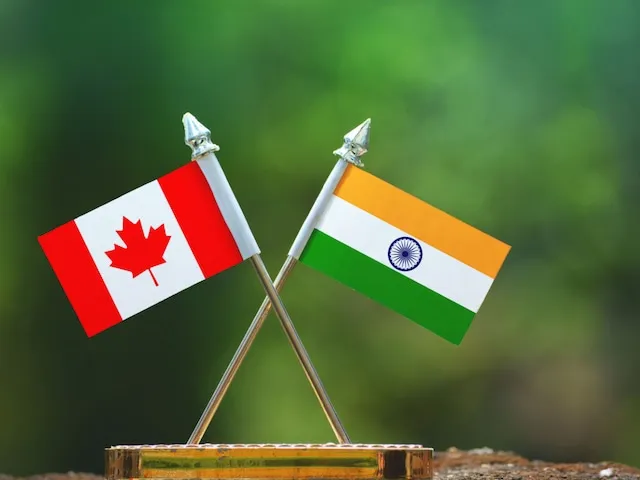Relations between India and Canada are at a low point, causing worry for many, especially Indian students and their families. Canada is a popular choice for Indian students seeking higher education, and the ongoing diplomatic issues are raising concerns about how this may affect student visas and future opportunities. Nearly half of the 500,000 international students Canada welcomes each year come from India. This situation leaves many students anxious about their studies and career paths.

Student Concerns About Visa Status
Indian students in Canada, like Simran, are feeling the impact of these tensions. Simran expressed her fears about how the diplomatic clash might affect her student life and the process of renewing her visa. Another student, Sunita, shared similar worries, highlighting the growing anxiety among her peers. Parents, like Isha Mehra, whose child is studying in Canada, are also concerned about the potential effects on their children’s education. Travel expert Jatinder Gupta has confirmed that students are facing increasing challenges due to the current situation.

Recent Developments in Diplomatic Relations
The tensions escalated when India expelled six Canadian diplomats and withdrew its own High Commissioner from Canada. This has created uncertainty for many students and visa applicants, leaving them unsure about their future in Canada. Canadian Prime Minister Justin Trudeau recently spoke about the situation, stating that the allegations against India regarding the killing of Khalistani activist Hardeep Singh Nijjar were based on intelligence rather than concrete proof. Trudeau emphasised that his government is serious about ensuring the safety and security of Canadians.
Trudeau’s Comments on India
Trudeau reiterated that Canada does not want to be in a state of tension with India. He expressed support for India’s territorial integrity and stated that while there are differing opinions in Canada, it does not change the country’s policy. Trudeau noted that India’s response to Canadian concerns has involved undermining Canada’s democracy. He mentioned that intelligence about the Nijjar killing was gathered following requests from South Asian MPs in Canada.
Reaction from Indian Officials
In response to Trudeau’s comments, the Ministry of External Affairs in India criticised his handling of the situation. Spokesperson Randhir Jaiswal stated that Canada has not provided any evidence for its serious allegations against India. He emphasised that the responsibility for the damage to India-Canada relations rests solely with Trudeau.
Impact on Canadian Investments in India
Despite the current tensions, experts believe that Canadian investments in India are unlikely to be severely affected in the long term. While new investors may be hesitant, those already established in the Indian market are expected to continue their operations. Canadian pension funds and private investors have invested approximately $21 billion in India over the past five years, highlighting the strength of Canadian capital in the Indian economy.

The Role of Canadian Pension Funds
Canadian pension funds, such as the Canada Pension Plan Investment Board (CPPIB) and Ontario Teachers’ Pension Plan (OTPP), have made significant investments in India, particularly in infrastructure and energy sectors. These funds have established offices in India, which strengthens their commitment to the market. Experts suggest that while smaller Canadian funds may slow down their decision-making due to political concerns, Tier-1 investors are likely to remain committed to their Indian investments.
Mutual Benefits for Canada and India
The relationship between Canadian pension funds and India is beneficial for both parties. India needs substantial investment to achieve its infrastructure goals, while Canadian funds are looking for reliable opportunities to generate stable returns. This mutual dependence suggests that further deterioration in diplomatic ties would harm both sides.
Future Outlook for Investments
Experts believe that investments in public markets will remain stable, but state-backed infrastructure projects may experience delays if diplomatic tensions escalate. Canadian investors have shown significant interest in India, and while new investments may slow down temporarily, the long-term outlook remains positive. The political landscape in Canada could play a critical role in shaping future relations, especially with federal elections coming up in 2025.

The current diplomatic tensions between India and Canada are raising concerns among students and investors. While there are immediate worries about the impact on education and future plans, experts suggest that established Canadian investors are likely to remain committed to the Indian market. The mutual benefits of the relationship could help maintain investment flows, even amidst political uncertainties.
